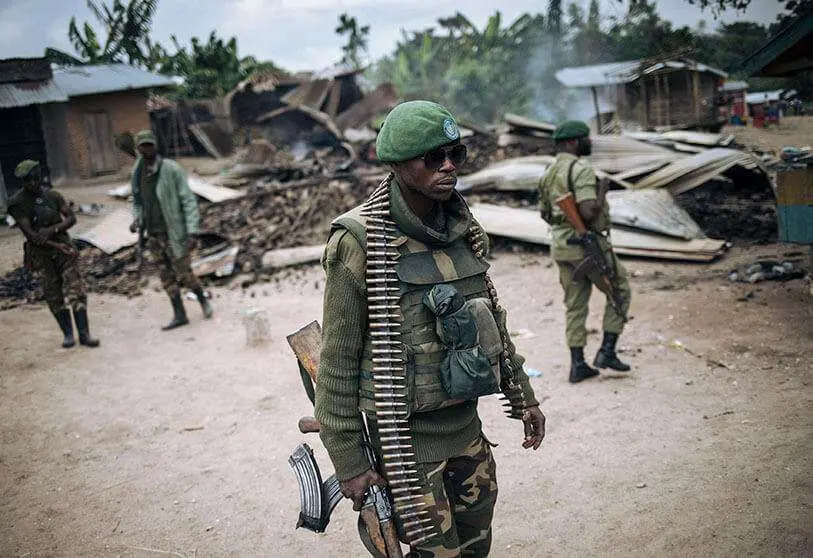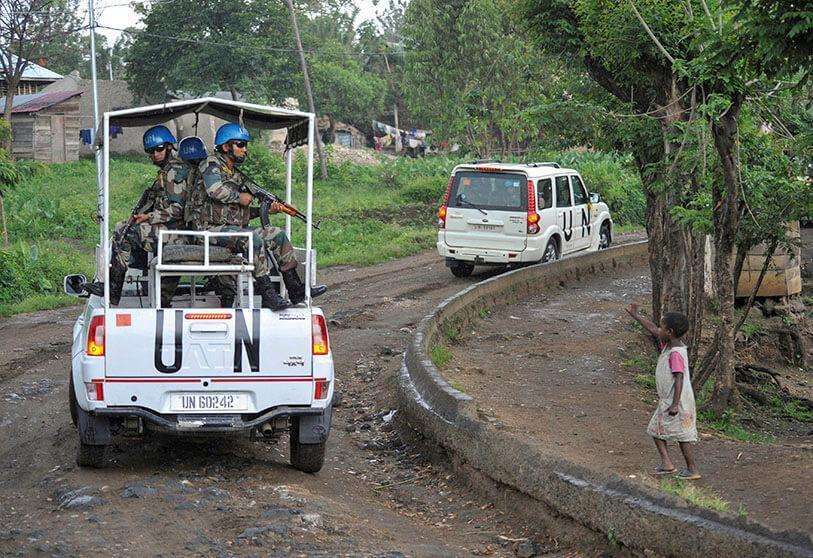272 civilians killed in M23 rebel group attack in DR Congo

A total of 272 civilians were killed in last week's attack by the rebel group March 23 Movement (M23) in northeastern Democratic Republic of Congo (DRC), according to the latest figures from the government, which initially put the death toll at around 100.
"The latest news we have just received is that a total of 272 civilians have been killed," including at least 17 minors, Julien Paluku, the Congolese minister of industry and former governor of the North Kivu region, where M23 operates, told a press conference late on Monday.
"The communities were able to determine the number of dead", after the Armed Forces of the DRC (AFDRC) last Thursday gave an initial figure of at least 50 dead, which the government later raised to a hundred, in the attack perpetrated between Tuesday and Wednesday in the town of Kishishe, in the territory of Rutshuru.
On the other hand, the spokesman of the Executive and Minister of Press and Communication, Patrick Muyaya, revealed that the government will request the opening of an investigation at the International Criminal Court (ICC).
"Despite the restrictive road map of the Luanda mini-summit, no withdrawal of Rwandan forces and M23 terrorists has been observed on the ground," the army regretted in a communiqué last week.
The FARDC referred to the summit held in the Angolan capital on 23 November at the invitation of Angolan President João Lourenço, the African Union mediator between the DRC and Rwanda, whom Kinshasa accuses of supporting the M23.
Although Kigali strongly denies this, a UN expert report leaked last August confirmed this cooperation.
At the summit, Congolese President Felix Tshisekedi and Rwandan Foreign Minister Vincent Viruta, representing Rwandan President Paul Kagame, called for a cessation of hostilities from 18:00 local time (17:00 GMT) on 25 November, but fighting broke out again on Thursday.

The rebels, for their part, denied official figures in a statement and put the number of civilians killed at eight, due to "stray bullets".
The M23 was created in 2012, when Congolese soldiers revolted because of the loss of power of their leader, Bosco Ntaganda, indicted by the ICC for war crimes; and because of alleged breaches of the peace agreement of 23 March 2009, which gives its name to the movement.
The group demanded a renegotiation of the agreement signed by the Congolese guerrilla group Congrès National pour la Défense du Peuple (CNDP) for their integration into the army, in order to improve their conditions.
The CNDP, made up mainly of Tutsis (a group that suffered greatly from the 1994 Rwandan genocide), was formed in 2006 to - among other objectives - fight the Hutus of the Forces for the Liberation of Rwanda (FDLR), founded in 2000 by genocide leaders and other Rwandans exiled in the DRC to regain political power in their country of origin.
After years of inactivity, the M23 began operating again last March and at least 340,000 people have been displaced as a result of their fighting with the FARDC, according to the latest UN figures.
After months of lull, fighting resumed this October and the M23 has advanced towards Goma, the capital of North Kivu, with clashes between the two sides about fifteen kilometres from the strategic town, which the rebels seized in 2012.
Eastern DRC has been mired in conflict for more than two decades, fuelled by rebel militias and the army, despite the presence of the UN peacekeeping mission (MONUSCO).








